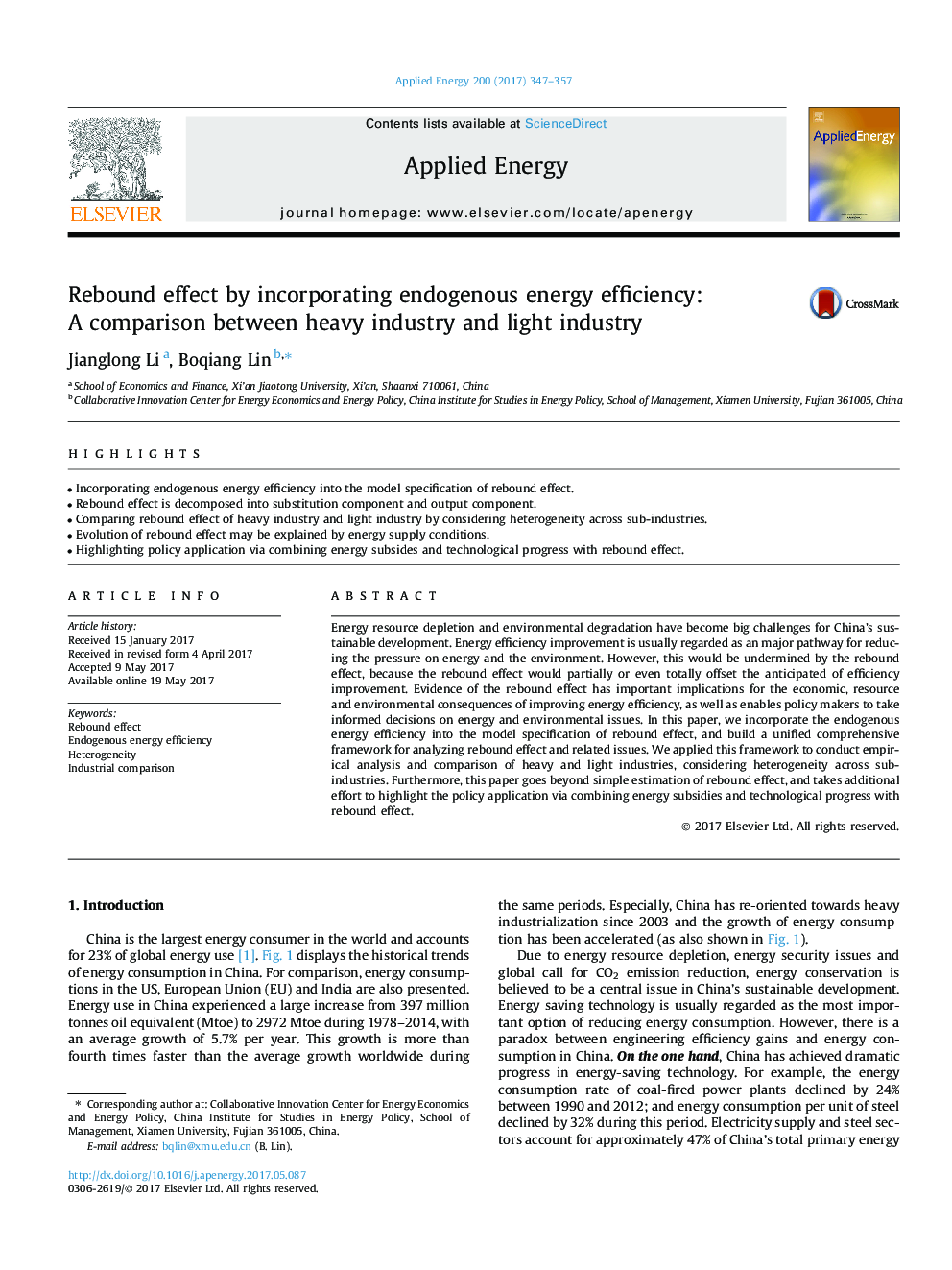| Article ID | Journal | Published Year | Pages | File Type |
|---|---|---|---|---|
| 4916165 | Applied Energy | 2017 | 11 Pages |
Abstract
Energy resource depletion and environmental degradation have become big challenges for China's sustainable development. Energy efficiency improvement is usually regarded as an major pathway for reducing the pressure on energy and the environment. However, this would be undermined by the rebound effect, because the rebound effect would partially or even totally offset the anticipated of efficiency improvement. Evidence of the rebound effect has important implications for the economic, resource and environmental consequences of improving energy efficiency, as well as enables policy makers to take informed decisions on energy and environmental issues. In this paper, we incorporate the endogenous energy efficiency into the model specification of rebound effect, and build a unified comprehensive framework for analyzing rebound effect and related issues. We applied this framework to conduct empirical analysis and comparison of heavy and light industries, considering heterogeneity across sub-industries. Furthermore, this paper goes beyond simple estimation of rebound effect, and takes additional effort to highlight the policy application via combining energy subsidies and technological progress with rebound effect.
Keywords
Related Topics
Physical Sciences and Engineering
Energy
Energy Engineering and Power Technology
Authors
Jianglong Li, Boqiang Lin,
